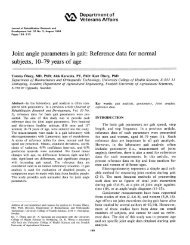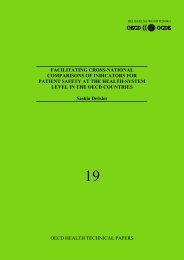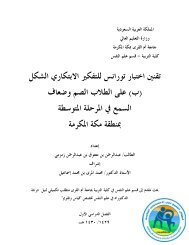awareness through movement
awareness through movement
awareness through movement
Create successful ePaper yourself
Turn your PDF publications into a flip-book with our unique Google optimized e-Paper software.
34 AWARENESS THROUGH MOVEMENT<br />
to change our position, we must make use of our senses, our<br />
feeling, and our power of thought.<br />
The active involvement of the entire nervous system in the<br />
waking state is a part of every method of self-improvement, even<br />
in those that claim to be concerned with only one of the four<br />
components of the waking state.<br />
2. It is easier to distinguish the quality of <strong>movement</strong><br />
We know more clearly and certainly about the organization of<br />
the body against the pull of gravity than we do about the other<br />
components. We know much more about <strong>movement</strong> than about<br />
anger, love, envy, or even thought. It is relatively easier to learn<br />
to recognize the quality of a <strong>movement</strong> than the quality of the<br />
other factors.<br />
3. We have a richer experience of <strong>movement</strong><br />
We all have more experience of <strong>movement</strong>, and more capacity<br />
for it, than of feeling and thought. Many people do not differentiate<br />
between overexcitability and sensitivity, and consider highly<br />
developed sensitivity a weakness; they suppress any troubling feelings<br />
and avoid situations that might arouse such feelings. In a<br />
similar way thought is also restrained or broken off by many<br />
people. Freedom of thought is considered defiance of the accepted<br />
laws of behavior, not only in religion, but also in matters affecting<br />
ethnic affiliation, economics, morality, sex, art, politics, and even<br />
science.<br />
4. The ability to move is important to self-value<br />
A person's physical build and his ability to move are probably<br />
more important to his self-image than anything else. We must<br />
only watch a child who has found some imperfection in his mouth<br />
or something else in his appearance that seems to make him<br />
different from other children to convince ourselves that this discovery<br />
will affect his behavior considerably. If, for instance, his


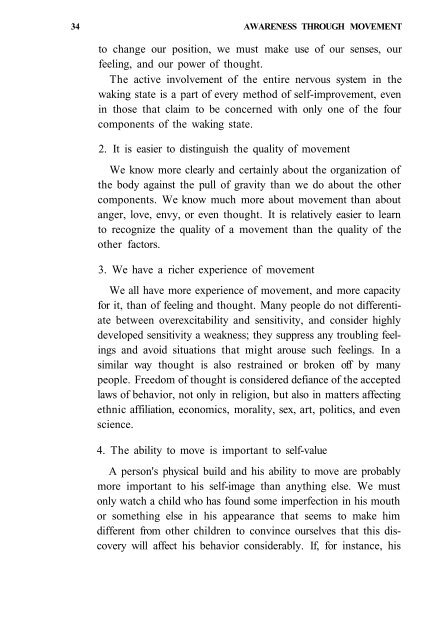




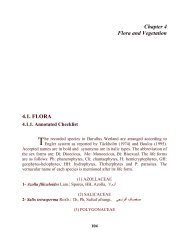

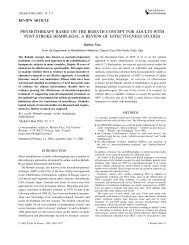
![Successful Ministry to the Retarded[ETowns] - Elmer Towns](https://img.yumpu.com/47721906/1/190x252/successful-ministry-to-the-retardedetowns-elmer-towns.jpg?quality=85)


